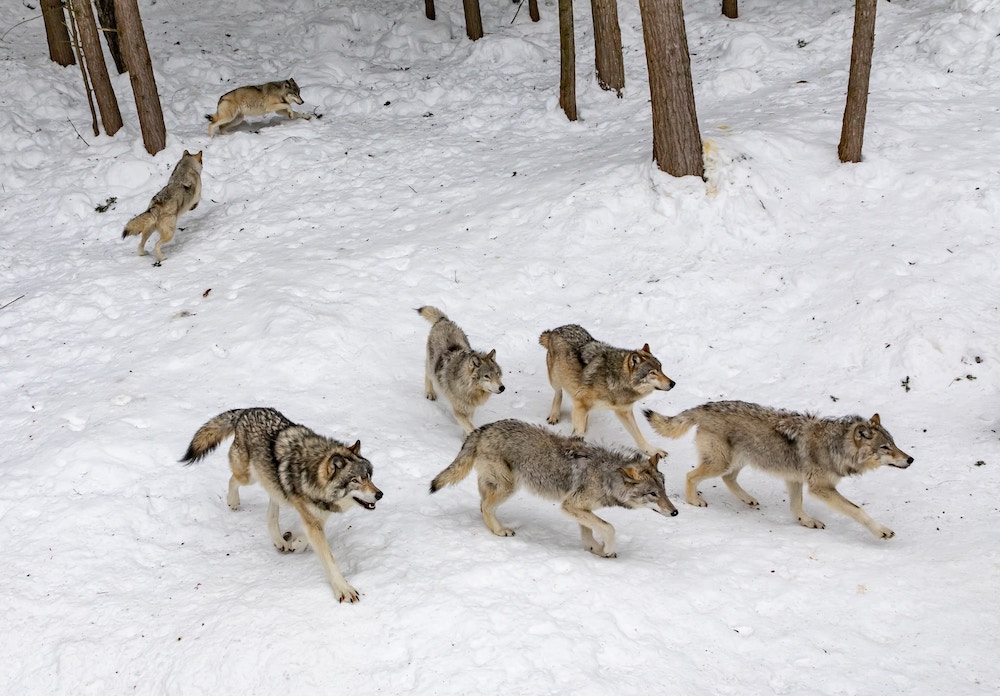
- Details
- By Tribal Business News Staff
- Energy | Environment
The U.S. Fish and Wildlife Service has awarded more than $6.4 million in grants to 36 federally recognized Tribes across 17 states to support conservation projects benefiting fish and wildlife resources and their habitats.
The grants, awarded through the Tribal Wildlife Grants Program, will support a wide range of projects, including the recovery of federally listed threatened and endangered species, habitat restoration and enhancement, and training for the next generation of conservationists.
The tribal grants in this round of funding include:
- Crow Tribe of Indians in Montana (Black-footed Ferret Recovery in Crow Country) - $199,704 to enhance black-footed ferret recovery, increasing the population from 6 to 10 breeding pairs and hiring staff to support work occurring on the Crow Reservation.
- Chickasaw Nation in Oklahoma (The Chickasaw Nation Kullihoma Waterfowl Habitat Management Project) - $139,034 to identify, enhance and protect vital waterfowl habitats on the Kullihoma Reservation through crop planting and installation of duck boxes, benefitting wading birds, reptiles, amphibians and aquatic furbearers and their wetland habitats.
- Lac Courte Oreilles Band of Lake Superior Chippewa in Wisconsin (Lac Courte Oreilles Ma'iingan Relationship Plan) - $110,510 to update the 2013 Ma’iingan (gray wolf) management plan to better reflect Tribal Ecological Knowledge and contemporary ecological, biological and social science for this culturally important species.
- Native Village of Tazlina in Alaska (Wolf Pack Monitoring and Population Estimates of Ahtna’s Eastern Territory) - $199,600 to conduct comprehensive research and enhance understanding of wolf pack range, distribution and diet within the eastern portion of the Ahtna Territory, an area that has not been studied for over 30 years.
- Pyramid Lake Paiute Tribe in Nevada (Integrated Population Monitoring of Recovering Bighorn Sheep- $196,633 to support preservation and recovery of the recently reintroduced, highly vulnerable California bighorn sheep in the Lake Range through public outreach and monitoring.
- Rappahannock Tribe in Virginia (Rappahannock Tribe Herring and Oyster Restoration Project) - $199,954 to conduct genetic research and build a mobile aquaculture unit to propagate river herring and Rappahannock River oysters, restoring Tribal access to cultural food sources and providing job opportunities for Tribal citizens.
- Shoalwater Bay Indian Tribe in Washington (Western Snowy Plover and Streaked Horned Lark Habitat Management Plan) - $186,834 to improve the conservation status of the western snowy plover and streaked horned lark by managing non-native species, replanting traditional plants, restoring key habitats, and increasing the resilience of coastal dune and shoreline habitats to withstand erosion and flooding and increase shellfish and fish resources.
- Tunica-Biloxi Tribe of Louisiana (Tunica-Biloxi Rivercane Restoration) - $159,637 to restore rivercane and longleaf pine on reservation lands in Avoyelles and Rapides parishes, helping to restore and manage habitat for wildlife in a manner consistent with cultural traditions.
The Tribal Wildlife Grants Program helps fulfill federal trust responsibilities and achieve Tribal sovereignty by expanding Tribes’ natural resource management capacity. Since its inception in 2003, the program has awarded more than $118 million to Native American and Alaska Native Tribes, providing support for 662 conservation projects.
“Our success in achieving shared conservation goals depends on our relationships, knowledge-sharing and co-stewardship with federally recognized Tribes,” Service Director Martha Williams said in a statement. “By respecting and supporting Tribal interests and needs, we can improve and enhance fish, wildlife and natural and cultural resources for the benefit of all.”
The grants are provided exclusively to federally recognized Native American and Alaska Native Tribal governments and are made possible under the Related Agencies Appropriations Act of 2002 through the State and Tribal Wildlife Grants program.
